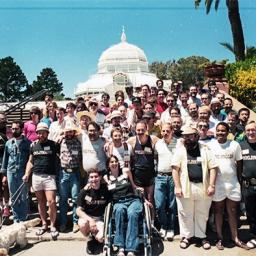Usenet and the origins of social exchange on the Internet
 Slate is running an interesting piece called "The First Gay Space on the Internet". But it's only marginally about homosexuality; it's really a look at how people use the Internet to meet, exchange opinions, and discuss things of interest. And that makes it relevant even today.
Slate is running an interesting piece called "The First Gay Space on the Internet". But it's only marginally about homosexuality; it's really a look at how people use the Internet to meet, exchange opinions, and discuss things of interest. And that makes it relevant even today.Many newsgroups were purely informational, useful for technical discussions or sharing of news or jokes or porn. But soc.motss was genuinely a new kind of community, a diverse set of people who felt at home and most like themselves on the Net, and who had discussions there that they couldn't have anywhere else. Before Facebook preferred status updates to long posts and Twitter reduced the size of a rebuttal to 140 characters, soc.motss proved that online discourse was indeed compatible with open-mindedness, subtlety, and civility.The article goes back to a time when bandwidth was limited and expensive, and people took a long time to compose and write down their thoughts before posting. It points out early newsreaders were unthreaded, so any newsgroup was bound to have more readers than contributors. The Internet has come a long way from then, but the long, written form is in decline, and quick, heat-of-the-moment posts or diatribes are more the norm.
If you agree, click the "like" button and then move on.
They're not outliers. But if there's 10x as much writing going on, there's 10x as much shit. But there's also 10x as much good stuff.
But I think that (xkcd author) Randall Munroe's premise is interesting, at least. Today's average young person is communicating with their peers in written form much more than probably any other. And not by just a small ratio. It's not likely we'll like the form any more than our parents like[d] our music -- but it doesn't change the fact that there's a whole lot of writing going on.